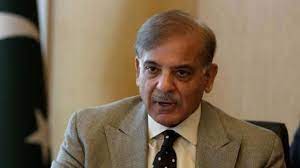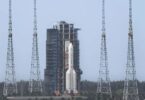Prime Minister Muhammad Shehbaz Sharif has said that the country’s economy direly needed reforms, which in turn, could be undertaken in a stable political environment as economic development was intrinsically linked to political stability.
The Premier took to his tweeter handle in the defence of the Federal Budget 2023-24, that recently presented by his government, and declared that the Charter of Economy appears to be the only way forward for our political parties to achieve prosperity for our people. According to him, the coalition government had prioritized the right areas that have the potential to spur economic growth, attract investment and make the economy self-sufficient, while the current budget would be the beginning of the process to fix the economy’s long-term ailments.
The Prime Minister was of the view that the government provided relief to the public sector employees and pensioners in the form of pay raise of up to 35% and 17.5% respectively, and increased the minimum wage to Rs32000. According to him, a more balanced budget that levied no new tax could not have been possible within the existing constraints.
Pakistan had been struck by a persistent political upheaval and economic frailty over the past one and half years and still passes through a crucial period in its history. There had been an all-time high risk of economic default and serious challenges to the nation’s survival, yet, the rigid politics of combatant leaders did not spare any movement to further complicate the situation. The Prime Minister has rightly observed that the volatile economy direly needs reforms and political stability, while the charter of the economy is the only way forward to move the country in the direction of sustainable economic growth that leads to economic prosperity and the well-being of the public. The pro-nation sentiments of the self-claimed Khadim-e-Ala are highly appreciable in that he has remorse over the political situation and economic weakness of the country and feels the need for a charter of the economy.
On that part, it is pertinent to mention that a charter of the economy is not possible without a charter of democracy to forge consensus among all political stakeholders over urgent issues that confront the nation including political instability, economic depletion, and electoral issues to pave the way for a permanent peace, economic revival and smooth holding of upcoming elections and afterward government transition. On these pages, we have persistently proposed a dialogue between all political forces including the parties in the coalition government and the PTI-led opposition to deliberate on the national issues and formulate a strategy to sail through the current deadlock. In that context, the Prime Minister and his aides had been advocating for dialogue in the past months but this endeavor could not get fruit due to no cooperation from the Pakistan Tahreek-e-Insaf (PTI). Currently, the Chairman PTI has expressed his willingness for dialogue and formed a committee to engage with the coalition government but at the time the ruling coalition refused to negotiate with its adversary.
Apparently, the call for dialogue is being considered a sign of weakness by the opposing political factions, and no one has the courage to use this opportunity for the larger benefit of democracy and the country. In fact, economic and political stability, and consensus over upcoming electoral reforms is the need of every political group, however, selfish leaders are not ready to capitulate to their ego thus political wrangling continues and the economy nose-downs every passing day.
Although, the government has passed through a very crucial phase during the past year and faced multiple challenges arising out of the super-floods, followed by relief and rehabilitation operations, a global energy crisis, the worst effects of war in Ukraine, and other geostrategic upheavals. At the same time, the continued political instability damaged the economy and multiplied the challenges for the government and the public.
As for the government and the opposition, both factions had blatantly bulldozed the national economy with their reckless politics, and a limited time had been left with them to initiate a dialogue prior to the next election. The government should convene an All Parties Conference (APC) to deliberate on important national issues and forge a nationwide consensus on the national economy, draw red lines in politics, define a code of conduct, and promote a positive political culture in the country.
The nation has paid a heavy price for the selfish politics of its leaders and now the public will not tolerate such rigid behavior anymore that has torn the national unity, ruined the economy, and caused challenges to the survival of the country. After all, the people will not care for a leader or political group who does not value the national prestige, public interest, and sovereignty of the country.







